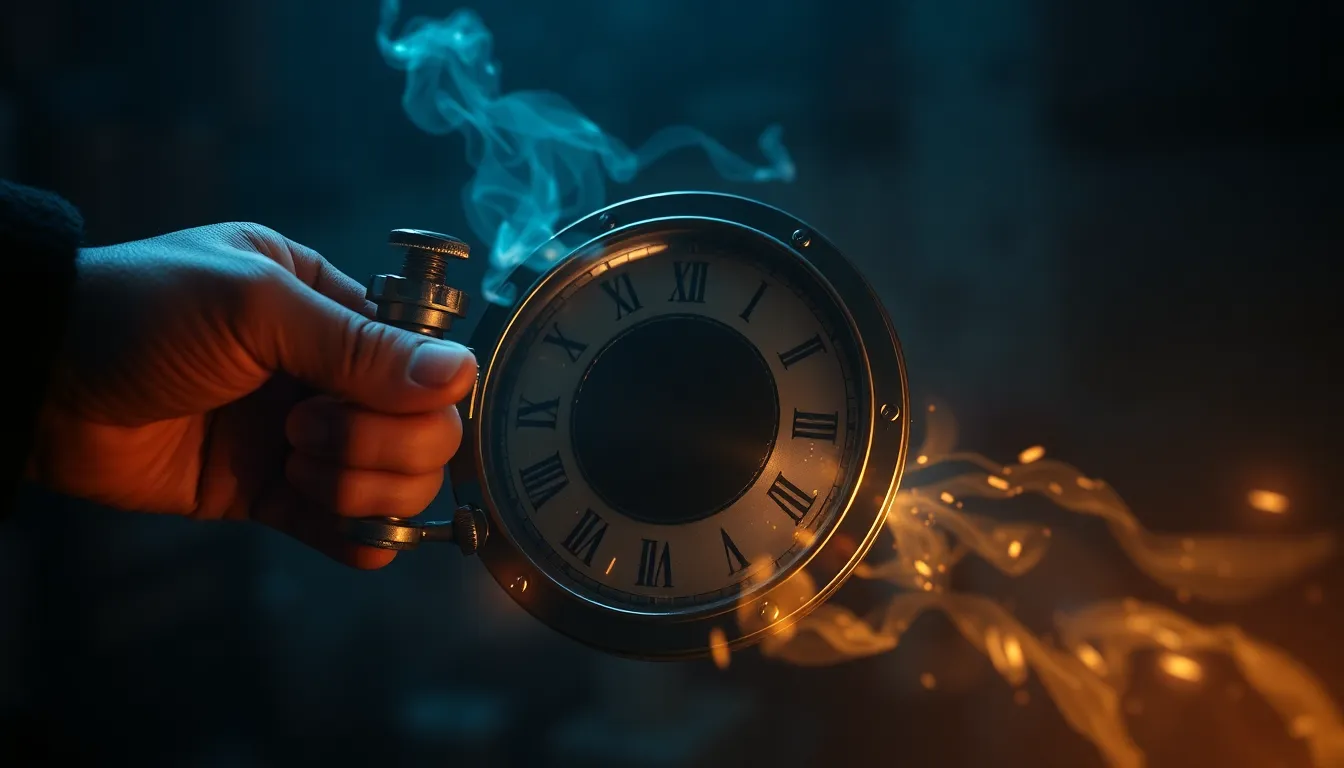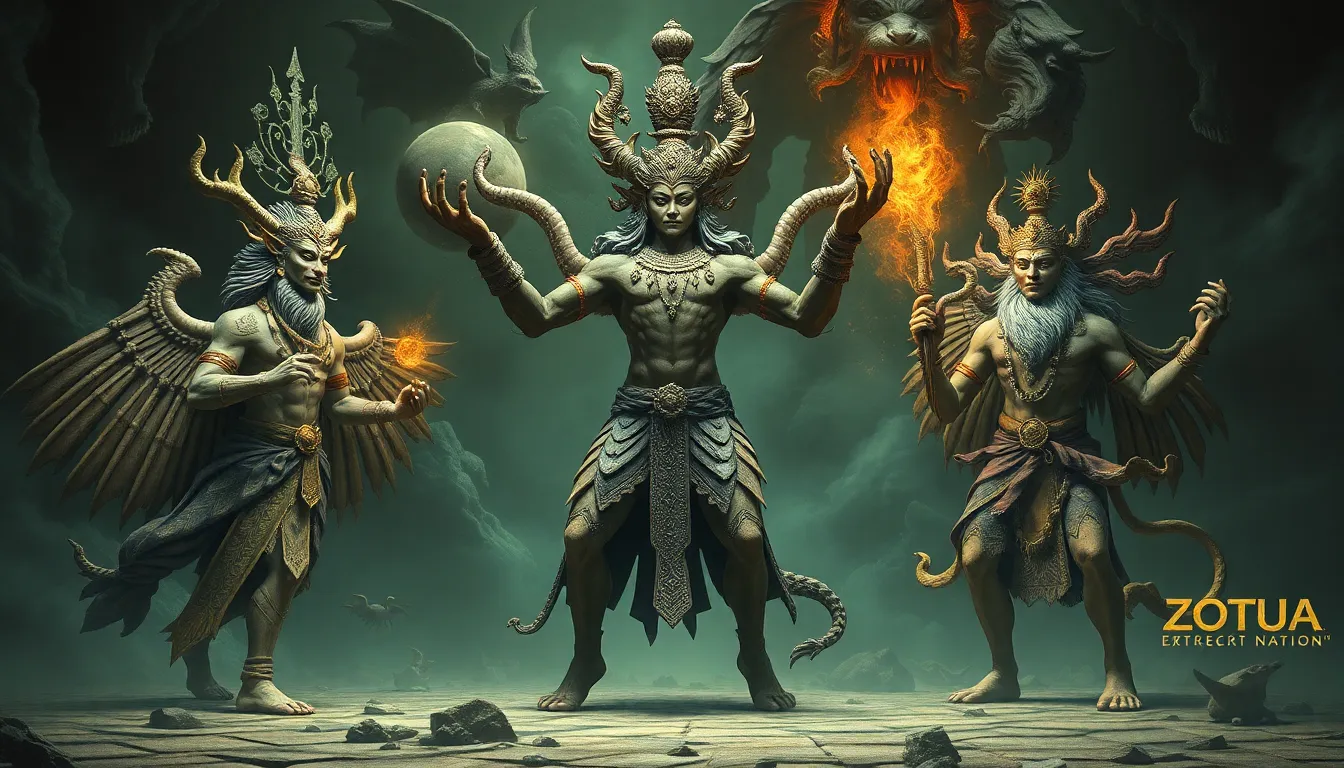The Myth of the Just Warrior: Morality in Battle Stories
1. Introduction: Understanding the Just Warrior
The concept of the Just Warrior has long been a powerful archetype in literature, mythology, and history. This figure embodies the ideals of honor, valor, and righteousness in battle, often positioned against the backdrop of moral dilemmas. The Just Warrior is typically seen as a champion of justice, fighting for a noble cause. However, the historical context of this archetype is complex, with its roots tracing back to ancient traditions where the morality of war was often intertwined with the divine.
Examining the morality in battle narratives is crucial, as these stories shape societal views on conflict and heroism. Understanding the Just Warrior requires a deep dive into cultural representations of war, the ethical frameworks that justify violence, and the psychological impact on those who engage in combat.
2. The Evolution of the Just Warrior Myth
The narrative of the Just Warrior has evolved significantly over the centuries. In ancient texts, such as Homer’s “Iliad,” heroes like Achilles grappled with personal honor and the consequences of war. These early representations set the stage for the warrior ethos that would permeate later literature.
During the medieval period, the concept of chivalry emerged, further shaping the Just Warrior archetype. Knights were expected to uphold codes of conduct that emphasized bravery, loyalty, and protection of the innocent. This era highlighted the moral responsibilities of warriors, intertwining personal valor with societal expectations.
In contemporary media, the Just Warrior is often reinterpreted. Films and video games frequently depict warriors as flawed individuals facing moral quandaries, challenging the traditional notion of the heroic figure. This evolution reflects a broader understanding of the complexities of warfare and the human experience.
3. Moral Justifications for War
Theories of Just War provide a framework for understanding the moral justifications behind armed conflict. Key principles include:
- Just Cause: The reason for going to war must be morally justifiable.
- Legitimate Authority: Only duly constituted authorities can declare a war.
- Right Intention: The intention behind the war must be to promote good or avoid evil.
Historically, battles such as the American Revolutionary War are often cited as just wars, fought for the principles of freedom and self-determination. However, critiques of these moral frameworks raise important questions: Are they effective in genuinely promoting justice, or do they serve as manipulative tools to justify violence?
4. The Dichotomy of Good vs. Evil in Battle Stories
Many battle narratives present a stark dichotomy of good versus evil, simplifying complex moral landscapes. This black-and-white portrayal can significantly influence public perception of conflicts, painting warriors as either heroes or villains.
Literature and film often reinforce this narrative, but there are notable exceptions. Works such as “Catch-22” by Joseph Heller and the film “Full Metal Jacket” challenge these simplistic views, presenting characters that embody moral ambiguity. These stories compel audiences to question the righteousness of warfare and the humanity of those who fight.
5. The Psychological Toll on the Just Warrior
The internal conflict faced by warriors is a critical aspect of the Just Warrior narrative. Many individuals who engage in combat grapple with the weight of their actions, leading to what is known as moral injury. This concept refers to the psychological distress that arises from actions that violate one’s moral beliefs.
Real-life accounts from veterans reveal the profound impact of these experiences. Many struggle with guilt, shame, and the haunting memories of war, highlighting the complexities of the Just Warrior archetype. These narratives underscore the need for a more nuanced understanding of morality in warfare.
6. Gender and the Just Warrior Myth
The representation of female warriors in historical and contemporary narratives presents a unique perspective on the Just Warrior myth. Women have played vital roles in warfare across cultures, yet their stories are often marginalized or overlooked.
Gender stereotypes can significantly impact the perception of morality in battle. While male warriors are frequently celebrated for their bravery, female fighters may be portrayed through a lens of romanticism or victimhood. Notable figures like Joan of Arc and modern representations in films like “Wonder Woman” challenge these narratives, showcasing the moral complexities of female warriors.
7. Cultural Perspectives on the Just Warrior
The Just Warrior myth varies across cultures, each offering unique insights into warfare and morality. Indigenous perspectives, for instance, often emphasize a deep connection to the land and community, framing warfare within broader ethical considerations.
Comparative analyses reveal how cultural narratives influence the perception of justice in battle. Understanding these diverse viewpoints enriches the discourse on morality in warfare, encouraging a more inclusive approach to the Just Warrior archetype.
8. The Role of Technology in Modern Warfare
Advancements in weaponry have profoundly altered traditional notions of the Just Warrior. The rise of drone warfare and remote combat raises ethical questions about the nature of justice in battle. With technology replacing the human element, the moral implications of warfare are further complicated.
Public perception of morality in these contexts is often conflicted, as the distance provided by technology can desensitize individuals to the realities of war. This shift challenges the very foundation of the Just Warrior myth, prompting a reevaluation of what it means to fight justly in the modern age.
9. Reimagining the Just Warrior in Contemporary Narratives
Recent trends in literature and media are beginning to subvert the Just Warrior archetype. Stories that present warriors as multifaceted individuals with moral dilemmas foster a deeper understanding of ethics in battle. Works like “The Nightingale” by Kristin Hannah and the series “Game of Thrones” illustrate the complexities of loyalty, sacrifice, and morality.
The importance of nuanced storytelling lies in its ability to challenge traditional perceptions. By providing a more complex view of warriors, contemporary narratives encourage audiences to reflect on the ethical implications of conflict and the human experience at large.
10. Conclusion: The Future of Morality in Battle Stories
As society continues to grapple with the realities of war, the myth of the Just Warrior remains relevant yet increasingly complex. The evolution of this archetype reflects broader changes in cultural attitudes towards morality and conflict. A deeper examination of the Just Warrior, informed by diverse perspectives and modern challenges, is essential for understanding the future of morality in battle stories.
Ultimately, the narratives we create about warriors shape our collective consciousness about justice, ethics, and the human condition. Acknowledging the intricacies of these stories allows for a richer discourse on the nature of warfare and its moral implications.



